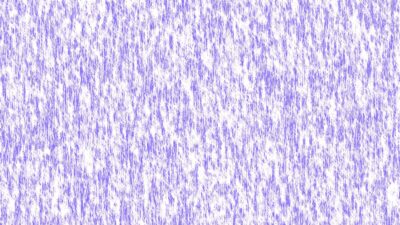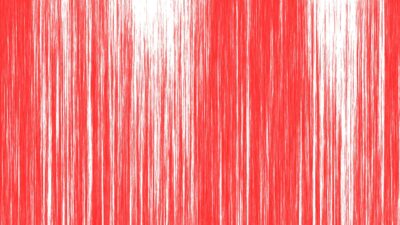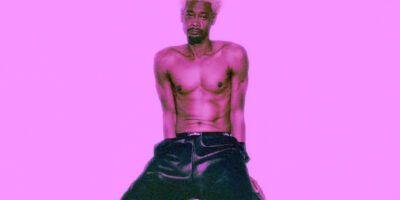Expressing gender and sexuality will forever be fruitful in music, historically associated with punk, artists donning dresses and makeup to break gender norms, or with ultra-pop diva empires, where sexuality is sold as high art. Drag queens are progressively creeping into the forefront of pop culture, now sold as Pop! Vinyl Figures and featured as guests on morning talk shows worldwide, but have yet to break in popular music terrain. Drag music has tended to be too complex and all too hyper-surreal for most eyes and ears, reserving it to the fringes of society. Drag queens craft a career to imitate the idea of celebrity, the fundamentals of drag combining performance art and elaborate character construction. Even with breaks into the mainstream, the heart of drag is forever among its own community, something entirely punk and entirely queer, incomprehensible to straight culture and only recently appreciated.
Each queen delivers a unique persona and aesthetic with music that cannot be pigeonholed into one genre. Queens release full albums, utilizing music as a key ingredient in expressing their character. To fans of drag music, it doesn’t matter if you penned every word or simply slapped down some Auto-Tuned, pre-written lyrics: the character lies at the center of sales. What matters is distinction—each queen is just as popular as they are unpopular. Working strictly for the fans, they fight against fitting in and hardly find wide-scale success. Living for the art, it’s a rebranded rebellious ethos where gender isn’t a crutch but a tool in pointing out hypocrisy and bigotry.
Sharon Needles, Queen of Halloween and cult classic aficionado, is the most recognizable of punk queens, having changed the face and attitude of drag from how the mainstream knew it in 2012 with her persona based on horror icons and satire of the same. Sharon prides herself in having full albums of original content to perform, like her latest release, BATTLE AXE. Thematically dark and immersed in the trappings of a dance-pop album, success in drag comes with knowing your audience, and gay bars don’t usually take to depressing emo shit: the lyrical content has to be masked in thumping electronic dubstep. Within the character space, Sharon avoids getting personal on BATTLE AXE after being so public about a breakup on TAXIDERMY, instead writing about things that stir up scary visual imagery like “Brain Dead” or “Dirty Diaper.” Her brand and vision for drag is very remote, creating a fantasy and high concept character whose rebellion does not need to involve the personal life of who’s behind the costume. Sharon serves as a heralding champion of button-pushing, while holding camp near and dear to the heart; part of where queer communities see an opportunity to disturb the status quo is to be overly campy with pop music, establishing even more of a sense of escapism than any notable music star.
Gender non-binary queen, Adore Delano, has just as much punk energy as Sharon and sonically channels it through her third album, WHATEVER. After perfecting pop with her first two releases, WHATEVER establishes Adore as the perfect rock angel, advocating that gender is a construct. Her punk energy is delivered with sweaty grit, full-on screams, and voice cracks. She has progressed beyond her first album, TIL DEATH DO US PARTY, which was full of upbeat, comedic pop songs, now settling into raw gender expression, fairly uncommon with the drag culture of today. Labeling herself as gender non-binary in her music and art is essential to fans and youth who look to drag queens as role models and voices of clarification to understand themselves. The track “Butterfly” lulls, “Glitter baby boy / he don’t have a choice / I sparkle like toys / but he can’t find a boy,” for all the fabulous little boys waiting to metamorphosize. Being musically aggressive (and backed by a real band, to boot) reflects frustration in being a misunderstood queen who suffers from categorization from people that don’t understand where her drag has evolved from. Adore showcases real aggression, which is missing from an artist like Sharon, who is focused on a character.
Many queens deliberately make trashy pop music about putting on wigs, heels, and going out for the night, but just like any subculture, there are outliers that shape the future. “This Is My Hair” by Alaska Thunderfuck parodies any woman with nice hair proclaiming, “This is my hair, I don’t wear wigs.” Repeating those eight words is funny and smart, referencing punk by evoking its time old mantra: keep it simple, stupid. Alaska’s debut album, ANUS, featured many ironic songs that pushed equality boundaries while sitting among pop royalty, perhaps her most transgressive album to date, every song a jab at pop music and humanity at large. Further into the subculture, trans drag queen Peppermint has been making dance tracks since 2006. Her music initially reflected a shallow level of enjoying the party and serving it without any larger social commentary. However, Peppermint has flourished as of 2017, vocalizing rights for trans women and women of color after gaining a larger platform through RUPAUL’S DRAG RACE. On her new EP, BLEND, Peppermint and popular NYC queer rapper, Cazwell, crafted lead single “Blend” for trans empowerment. It goes back to the dance floor where the drag scene stands strong; to quote Peppermint, “It’s a ‘90s groove with millennial sensibility.” The perspective is authentic and fun, showing all the light that the trans community offers and showcasing that something as simple as living and being visible is punk.
But what’s the point? What is the significance of paying attention to drag queen music when it would hardly be considered for festival lineups, especially considering most queens don’t strive to perform their full albums? Well, it’s a type of devotion to an idol, indulging in the concept album and the ultimate fantasy, a vibrant escape from the world of today. Drag is a celebrated area of punk queerness, embracing being colorful and ridiculous with pop music to make your ears bleed and the irony to balance it out. Drag is the last frontier where charts do not matter because the drag queen’s rules don’t apply there anyway. What’s more, I’d say there’s a level of showmanship that drag queens emit that other stars do not, spending three-to-four hours getting ready. People of all sexes and genders are fascinated in one way or another by drag because it is a devotion to going against the grain, causing dialogue and disruption all the while. Ultimately, drag queens are an outlet for anyone needing escape.
















Comments